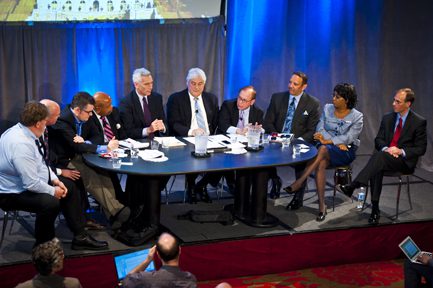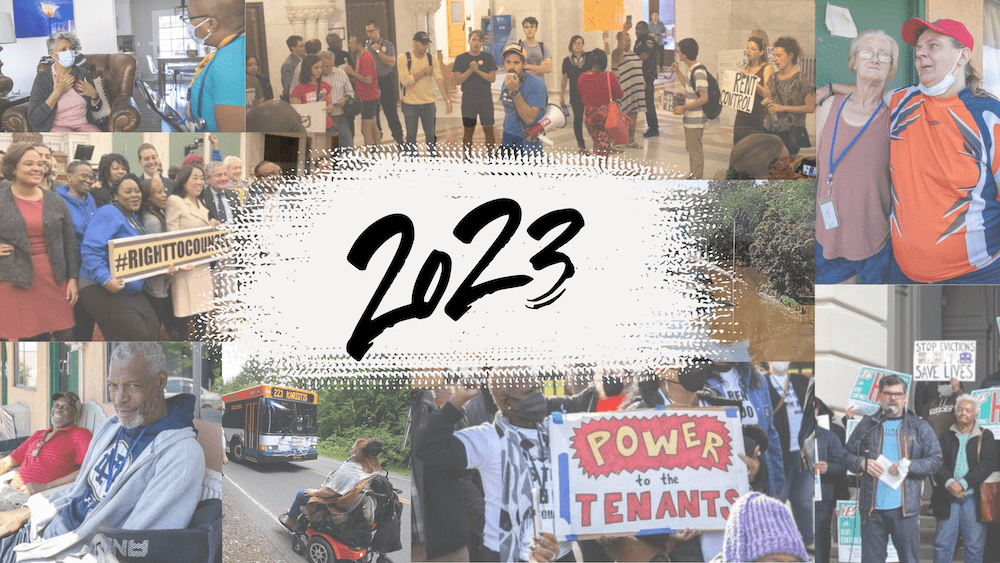Shelterforce and the National Housing Institute have been outspoken about the need to change the mortgage interest deduction — the country’s largest housing subsidy, which accrues primarily to wealthy households — for decades. But because it reaches so many people and has become so entrenched, it has widely been seen as a third rail — untouchable.
That spirit was evident when Sen. Jeff Merkley, in proposing a housing tax credit this week at the New America Foundation and here at NCRC to support entrance into homeownership, emphasized that it would be in addition to the mortgage interest deduction, which he called a good tool for wealth building once people have achieved homeownership.
But at this morning’s interactive panel on the future of mortgage finance at NCRC’s annual conference, it was a different story.
Mark Calabria of the Cato Institute (politics does make strange bedfellows), started off with an attack on the deduction, saying it distorted prices and didn’t achieve the policy objective it was ostensibly designed for—supporting homeownership. Mark Zandi of Moody’s followed up later, saying he thought it was not helpful, and that its popularity was going to wane as budget troubles increased and the housing industry realized it didn’t help them.
A clearly surprised Jared Bernstein asked Zandi, “If you could wave a wand and get rid of it, would you?”
Zandi said he would make it a tax credit, cut it half, and phase it out over 10 year period, which would give prices time to adjust slowly.
Perhaps its time for adovcates and progressives to get back on the mortgage interest deduction reform train. We might have back up this time.





Comments